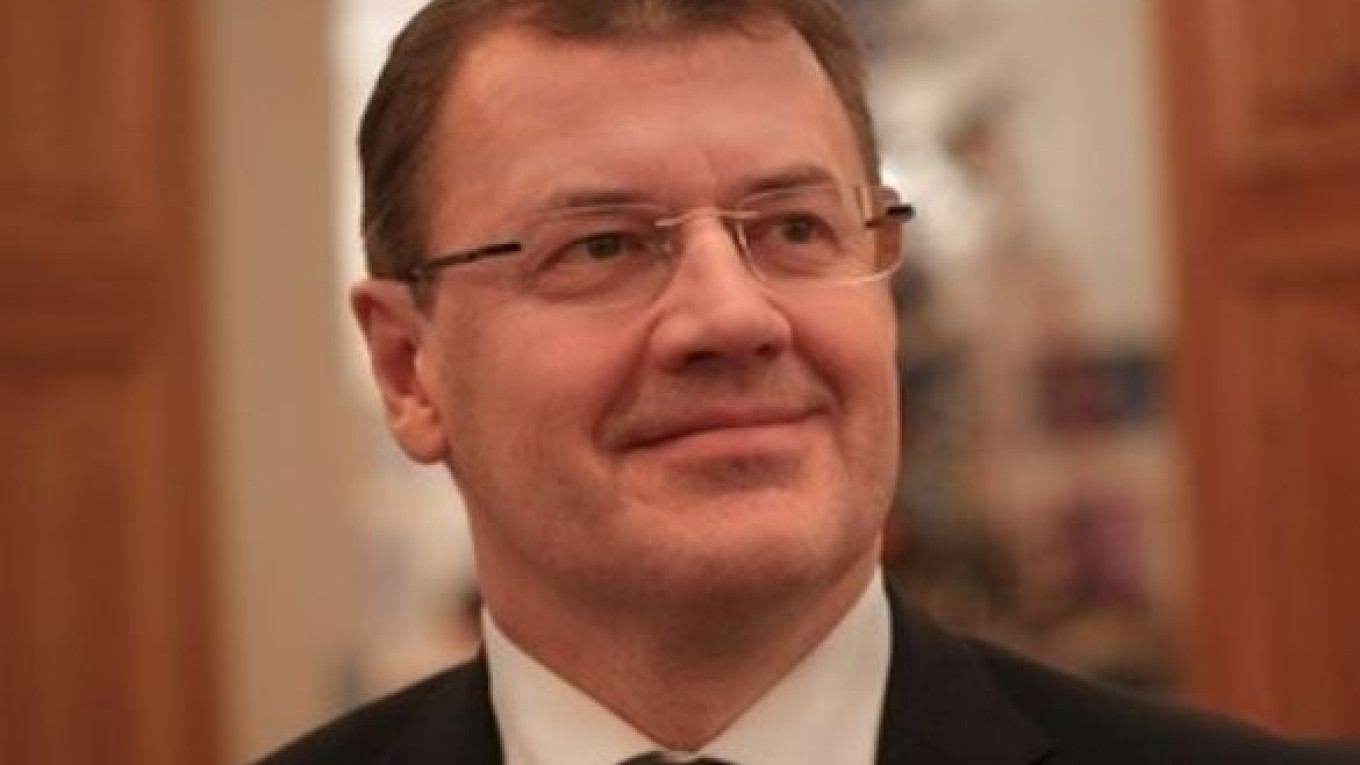The mayor of the western Siberian city of Tomsk announced Monday that he was quitting his post after months of open hostilities with the Tomsk region governor, a conflict one analyst said was provoked more by the flawed nature of budget-fund allocation in Russia's regions than by personal enmity.
Mayor Nikolai Nikolaichuk told the city legislature during a special session that he was stepping down in the hope that his departure would spur the city's economic and cultural development, which has stalled amid 18 months of festering tensions between local and regional authorities.
Such conflicts have been common in Russia's regions since the 1990s, and even though most mayors and governors are both from the ruling United Russia party, they often split on budget or land allocation issues.
Tomsk has a population of over 550,000 people and is known as one of Russia's main scientific and educational centers, with 20 percent of the population being students at Tomsk's six universities. The Tomsk region, meanwhile, is rich with oil, gas, metals, coal and timber.
The mayor and governor apparently disagreed on which sphere — scientific or industrial — should be prioritized. Tomsk region Governor Sergei Zhvachkin, who took office last February after being appointed by then-President Dmitry Medvedev, worked in the oil-and-gas industry in the region in the 1990s before entering public service.
“I do not share the idea of turning Tomsk as a scientific and educational center into the center for mineral companies,” Nikolaichuk said, according to a transcript of his speech to city lawmakers that was distributed to journalists.
“Eighteen months ago, the policies of the Tomsk region changed significantly, and they have influenced the city,” Nikolaichuk said. “Staying in my job as mayor would only lead to more conflict between the city and region. That's why the only realistic decision is to resign as mayor.”
Nikolaichuk added that under former Tomsk Governor Viktor Kress, the city managed to attract federal funds for large social and infrastructure projects, but now major projects could not be started because of the poor relationship between him and Governor Zhvachkin.
A representative for the mayor declined to elaborate more on the reasons for his resignation, saying they were all articulated in his statement.
Conflicts frequently arise between city and regional administrations, according to Yury Korgunyuk, an analyst with the Indem think tank, who pointed to budget issues as one of the most common points of dispute.
About two-thirds of taxes collected in any given region go to the regional capital, and governors often accuse mayors of poor use of the funds, Korgunyuk said. Since Moscow dictates how regional budgets are structured, mayors appeal to the federal government if they want help implementing a major project, bypassing the regional administration, he said.
Politics can also be a source of strife.
“There was a high-profile scandal in the Sverdlovsk region when the mayor and governor were fighting for the leading role in United Russia, not just for land and taxes,” Korgunyuk said.
In a statement published Monday on the Tomsk region administration website, Zhvachkin acknowledged that he had criticized Nikolaichuk's work for the past 1 1/2 years but said Nikolaichuk had “acted like a man” by resigning.
Nikolaichuk became Tomsk mayor in 2007, when he was appointed to be acting head of the city after corruption charges were brought against then-Mayor Alexander Makarov. In 2009, Nikolaichuk was elected to a five-year term.
The next mayoral election had been scheduled for 2014, but since Nikolaichuk decided to step down early, the vote has been moved to Oct. 13.
First deputy mayor Yevgeny Parshuto was appointed acting mayor on Monday. He told RIA Novosti that he was not going to run for mayor in October, due to fatigue from his large number of responsibilities.
Contact the author at [email protected]
Related articles:
A Message from The Moscow Times:
Dear readers,
We are facing unprecedented challenges. Russia's Prosecutor General's Office has designated The Moscow Times as an "undesirable" organization, criminalizing our work and putting our staff at risk of prosecution. This follows our earlier unjust labeling as a "foreign agent."
These actions are direct attempts to silence independent journalism in Russia. The authorities claim our work "discredits the decisions of the Russian leadership." We see things differently: we strive to provide accurate, unbiased reporting on Russia.
We, the journalists of The Moscow Times, refuse to be silenced. But to continue our work, we need your help.
Your support, no matter how small, makes a world of difference. If you can, please support us monthly starting from just $2. It's quick to set up, and every contribution makes a significant impact.
By supporting The Moscow Times, you're defending open, independent journalism in the face of repression. Thank you for standing with us.
Remind me later.


